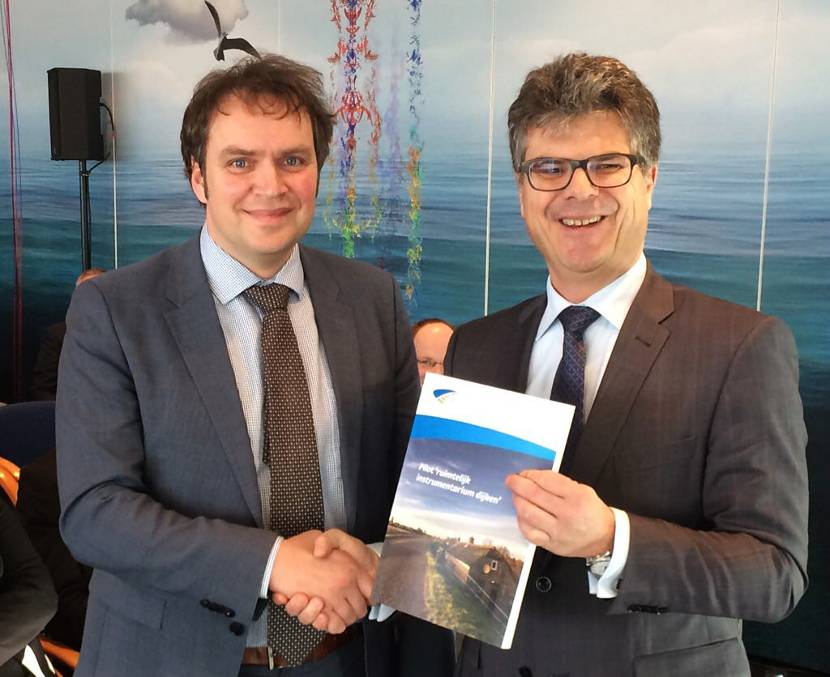Presentation of the results of the pilot study into spatial instruments for dykes
‘It is very good news that the pilot study has shown that we have an excellent toolkit of instruments for creating space for future dyke improvement activities. The impact of the instruments will be especially significant when authorities use them based on a common vision for an area and with a focus on the future design of the dyke concerned. Many opportunities can emerge as a result of constructive cooperation between the various authorities,’ according to Hermen Borst, director of the Delta Programme Commissioner’s staff. On behalf of Delta Programme Commissioner Wim Kuijken, Mr Borst accepted the report on the pilot study from Hans Oosters, chair of the Schieland en Krimpenerwaard District Water Board.

This pilot was a national study conducted within the framework of the Delta Programme. The main findings of the study will be included in the Delta Programme 2017. Chair Hans Oosters, whose water board coordinated the study, presented the results.
The pilot study examined how space can be reserved for dyke improvement in the future. In addition, a close look was taken at possibilities for linking up with other spatial planning developments involving, for example, the natural environment, housing and businesses. Krimpenerwaard, with many built-up areas directly alongside dykes, was used as the reference area. Various research was performed within the scope of the pilot study. For instance, the water board conducted exploratory talks with a number of public sector and private sector parties with the aim of acquiring a better picture of what they consider to be important in terms of reserving space for future dyke improvement.
Moreover, in collaboration with various authorities, Utrecht University studied the legal possibilities that exist for reserving space for future dyke improvement. And the Flood Protection Programme commissioned the Expertise Centrum Kosten en Baten (Costs and Benefits Expertise Centre) to conduct a financial study in which the costs of various dyke design variants were examined.